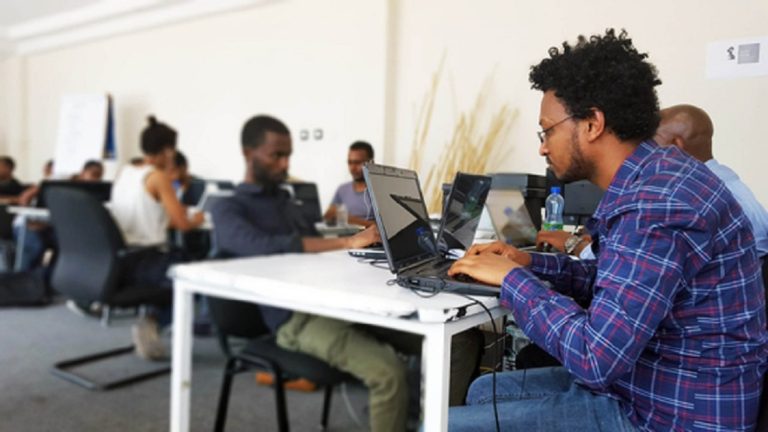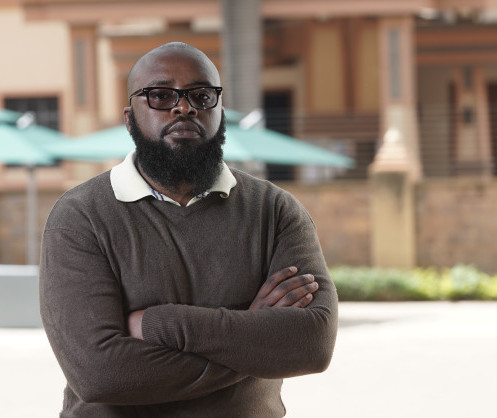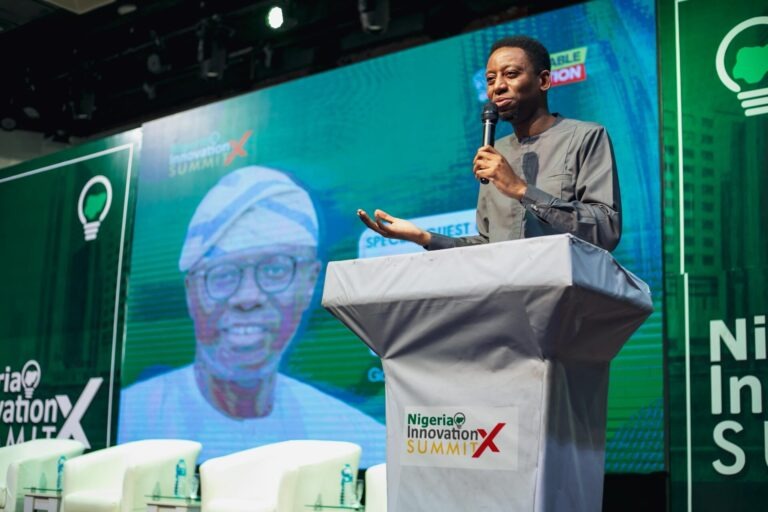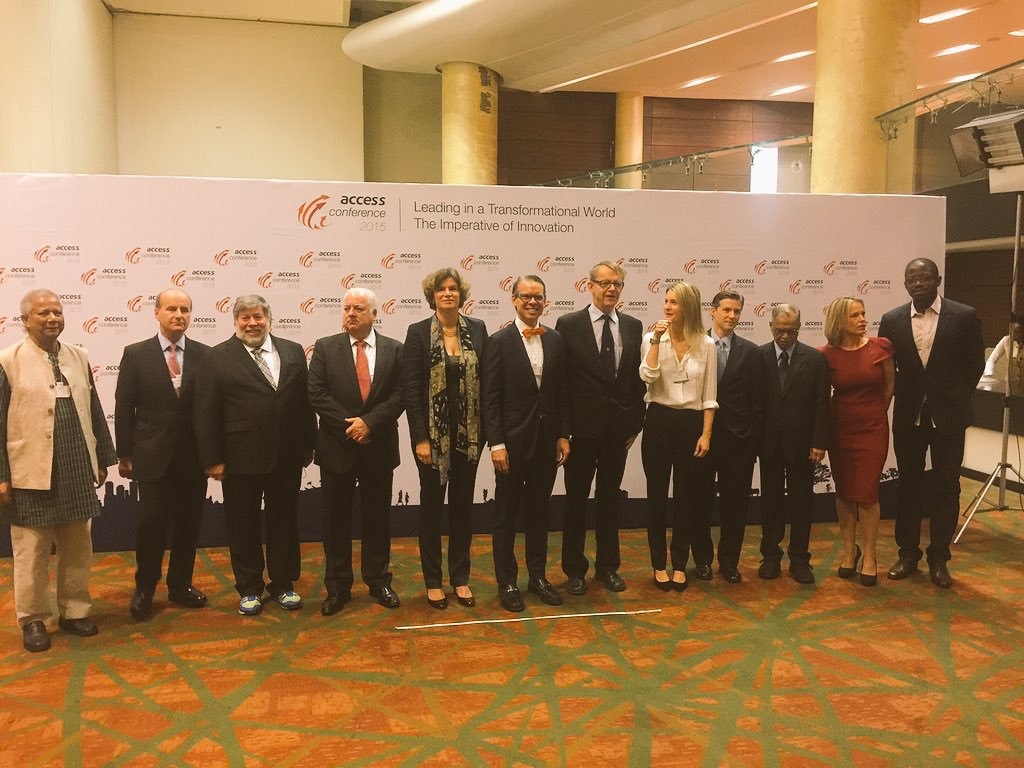Despite being fragmented, Africa’s gaming sector is still the “next big thing.”

The gaming business in Africa is currently quite fragmented, consisting of only a few tiny studios, but it is still “the next big thing” because of factors like the relative youth of the population on the continent.
Sub-Saharan Africa is one of the regions with the fastest-growing mobile gaming markets in the world, according to data published last year by Newzoo, the top source of market data and insights for the games industry, and gaming startup Carry1st.
The study revealed that between 2015 and 2021, there were 186 million more gamers in Sub-Saharan Africa than there were in 2015.
95 percent of gamers in the region play on a smartphone or tablet rather than consoles or PCs, which has sped up this quick rise. The COVID-19 pandemic has also contributed to this rapid increase.
In the past five years, the number of gamers in Sub-Saharan Africa has more than doubled, and it is predicted that both mobile gamers and gamers who pay for games will have the highest growth in this region worldwide.
Varun Nagendra, vice president of product, games at the South African mobile gaming business Carry1st, asserts that “African gaming is still very much in its infancy” despite its rapid expansion.
“There is strong consensus that Africa will be the next significant region for digital growth. A sizable audience that uses mobile devices exclusively is going online and consuming gaming material at accelerating rates. Many people in Africa can now access gaming for the first time thanks to the growth of mobile phone gaming and the availability of cheaper and quicker internet. Since 2015, there has been a 2.5x growth in mobile game players in Africa and a 4.2x increase in revenue.
But who is profiting from this? ChopUp, Sea Monster, Gamsole, Carry1st, to name a few, are some of Africa’s gaming success stories. However, the industry is fragmented, with only a few tiny studios and no true market leaders.
The CEO of one of those studios, Sea Monster, a South African game development firm, is Glen Gillis. How to combine the preexisting competencies, he claims, is the key concern for the African gaming sector.
There is a lot of focus on entry level jobs, hackathons, and game jams in this area, but our efforts shouldn’t just be directed there, he noted, as those activities deal with supply side issues. What we’re really dealing with here are demand-side issues: how do we scale demand, businesses, studios, and the gaming sector?
The absence of standardized payment mechanisms, which prevents game developers from adequately monetizing their work, and the scarcity of long-term business strategies other than advertising are related to this.
The need to accomplish less, better, and at scale in the serious gaming industry is becoming more widely acknowledged. Instead of continuously performing proof-of-concept experiments, what are we really proving? that games function? We are aware that is the case, said Gillis.
“The good news is that no one has ever found a solution to that specific problem. Africa has enormous needs and enormous potential for games to play a significant part in society, but we are no more behind the rest of the world in terms of how we will really realize that promise.
Despite this, Gillis is adamant that gaming in Africa is “the next big thing.”
“Africa is unquestionably going to be the future of most of the development in gaming over the next couple of decades, especially given that it is the youngest continent. There will be a wealth of story ideas and game ideas to choose from. Africa will undoubtedly be a significant market and a wellspring of innovation, he said.
It’s crucial to distinguish between the many meanings of what we mean by African games before continuing with this discussion. According to Gillis, he likes to categorize it into three categories: African-concept, African-made, and African-owned.
“In terms of African themes, I believe there is a great need for real-life narratives and creatives, and the world is increasingly seeking out that. Africa is still relatively undeveloped, and I believe that audiences around the world need novelty and the ability to identify with the works they are exposed to on a local level. Since authenticity is in demand worldwide, we can only hope that we will be able to share our own narratives with an audience that will value them.
“The next item is created in Africa, and it has to do with capacity. It would be incredible, for instance, if one of the major international players established a studio here, but that’s only one aspect of a plan that would cause some of the smaller businesses to go under and then consolidate into a single, larger business. Let’s take that as a lesson and recognize that while we do need the big players in this area, we also need the medium-sized and smaller businesses.
According to Gillis, African ownership is the single biggest obstacle facing African video games.
Without royalties, license fees, and annuity money flowing back into the continent, he claimed, “we are essentially always going to be a work-for-hire destination, which will be an extractive situation where our tales and talent are simply used by others, which would be a big sorrow.”
What intriguing directions are African entrepreneurs going with gamification and gaming?
We hustle in every way, according to Gillis. There is a lot going on in the industry, therefore we are investigating ways to group businesses together in search of bigger prospects that would enable everyone to scale. I believe it’s crucial to distinguish between the difficulties that any startup faces, those faced by the creative industries, and those faced by the gaming industry because while they all overlap, they do so slightly differently.
He asserted that the discussion must also include scale-ups, success, and the celebration of both commercial and creative achievements in addition to startups.
Games are what we do professionally, therefore game jams are not what the industry needs if they don’t provide individuals the chance to genuinely pursue viable professions, according to Gillis. “We can’t keep participating in game jams and interacting on a low level,” she added.
“I’ve always believed that starting in the middle is preferable to starting at the bottom. Don’t assume there is nothing occurring in Africa; in fact, there is a staggering amount of activity taking place, and we need to enhance what is already effective.
That kind of information greatly interests investors. For instance, in order to expand throughout Africa, Carry1st raised a US$20 million Series A extension round in January from investors such as Andreessen Horowitz, Avenir, and Google. Sea Monster has also grown, albeit slightly less.
“Africa is the last untapped market in the gaming industry. Investors are attracted to this area because it has growth and a developing market. They are intrigued because they now realize that we can produce goods that are as good as the greatest in the world, according to Gillis.
“Investors are also realizing that you can leverage incredible returns here and if games have a social angle to what they are doing then you can make money while driving change which appeals to the whole category of investors that are interested in making a better world,” says a representative of the investment community.
However, this might only apply to the most exclusive African gaming firms. Although investors in Africa are interested in the sector due to its widespread appeal, only a relatively small number have the experience and understanding to “really get the deal done,” according to Abdulrahman Aboshamah, the founder of the Egyptian firm Gamesbandy.
“Personally, I’ve wasted months with interested investors – some of them came to us first, but the result is the same, no knowledge in gaming so they view it as a big risk,” he said. “From what I’ve seen and heard, significant gaming investors typically come from outside of Africa.”
Is there anything restricting the space? Talent, according to Aboshamah, is essential.
What comes first, like the chicken-and-egg situation. There are incredibly few businesses in this field, almost little skill, and nothing to entice people to study game design or development, he claimed.
In addition to skill, Zubair Abubakar of the Nigerian gaming firm ChopUp claims that publication and monetization remain the biggest obstacles facing game producers.
Another issue is the lack of skilled game developers and the knowledge and abilities needed to run a gaming business, but organizations like Maliyo and Google are attempting to address this with their game dev bootcamps.
Going back to the start of the discourse, fragmentation is what is restricting the space.
“To scale what we are already doing, we need to band together and work together. We also need to find partners. In essence, acquisitions, scaling, and partnerships are what we actually need, according to Gillis.
But according to Abubakar, the industry is headed in the right direction.
“With new gaming firms, investors, publishers, and incubation programs entering the market, African gaming is growing steadily and gradually. The confluence is approaching, he declared.
“We continue to receive requests from both local and international game publishing partners, indicating that demand for African games is increasing on a par with demand elsewhere in the world.”







